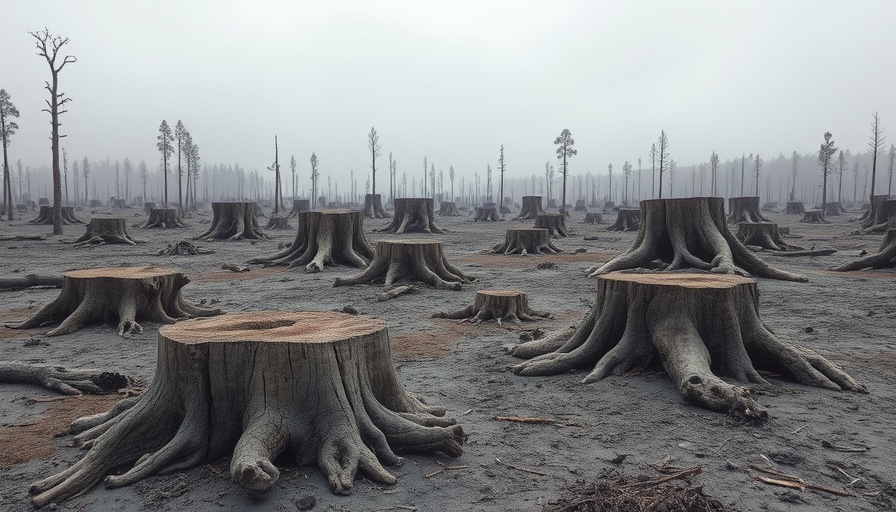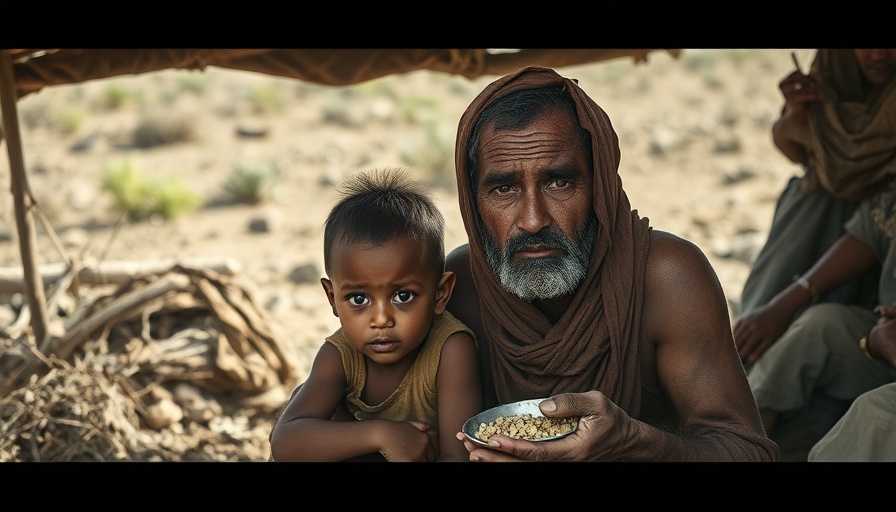
The Urgent Call to Action by Sarawak’s Indigenous Communities
In a striking battle for their rights, the indigenous Penan and Kenyah communities in Long Urun, Sarawak, are rallying for government intervention against Urun Plantations Sdn Bhd, accused of extensive deforestation of native lands. This alarming situation hinges on the casual disregard for Malaysian Sustainable Palm Oil (MSPO) standards, which are meant to protect local ecosystems and uphold communities' rights.
A Pattern of Ignored Compliances
The situation unfolding in Long Urun is not merely a localized clash; it raises broader implications relating to sustainability practices in Malaysia and its international reputation. According to Sarawak non-profit SAVE Rivers, the actions of Urun Plantations pose a significant question about the enforcement of environmental regulations. Celine Lim, director of the organization, emphasizes that this issue “is a test of Sarawak’s and Malaysia’s credibility on the global stage.”
The Heart of the Controversy: Free, Prior and Informed Consent
Central to the complaints is the lack of free, prior, and informed consent (FPIC) regarding land usage. The communities argue they did not consent to the land clearance operations purportedly authorized by Sarawak's village development authority. This violation of rights echoes a common concern seen in various deforestation debates worldwide, where indigenous voices are frequently drowned out by corporate interests.
A Slow Pace of Justice: The Role of Investigations
The communities have taken significant steps, from filing complaints with the MSPO in May to establishing a blockade against Urun Plantations. However, despite these efforts, the response from authorities has been disappointingly slow. Even as investigations were initiated, no moratorium or stop-work order was implemented, leaving forests vulnerable to ongoing destruction. Fiona McAlpine of The Borneo Project pointed out the urgent nature of the request for government action, stating, “They are fed up with waiting and blockading.”
Connecting Community Action to Global Movements
This situation mirrors global struggles for indigenous rights and environmental justice, where communities assert their rights to land and preservation of natural resources against large-scale agricultural enterprises. The ramifications of such conflicts resonate through initiatives aimed at sustainability, such as reducing carbon footprints and promoting biodiversity. As consumers—and importantly, eco-conscious consumers—many are left pondering how to support sustainable communities globally.
Climate Action and Sustainable Development
The dilemmas faced by the Long Urun communities underline a vital need for effective climate action and sustainable development practices. As world leaders increasingly recognize the interconnectedness of environmental protection, indigenous rights, and sustainable agriculture, this case exemplifies the urgent need to balance development and conservation. Engaging in ethical consumerism entails understanding the impact of choices on communities like those in Long Urun.
Moving Towards Solutions: What Can Be Done?
For individuals and organizations focused on sustainability, learning from the Long Urun situation could inspire a deeper commitment to support local movements. Supporting eco-friendly products, participating in sustainable agriculture initiatives, and advocating for responsible sourcing policies can empower communities facing similar challenges. Embracing a circular economy model not only honors indigenous communities but safeguards the natural resources that are essential for future generations.
Your Role in Supporting Sustainability
As eco-friendly readers, your engagement in conversations about sustainable practices is pivotal. Efforts like reducing waste, supporting fair trade, and investing in green technology create ripples of change. By staying informed about environmental policies and acting responsibly, you contribute to a broader movement advocating for sustainable living.
Join the call for action; demand accountability and transparency from corporations. Whether in your personal consumption choices or supportive community initiatives, urging the government and industries to prioritize sustainability is essential for ensuring a brighter and greener future.
 Add Row
Add Row  Add
Add 



Write A Comment